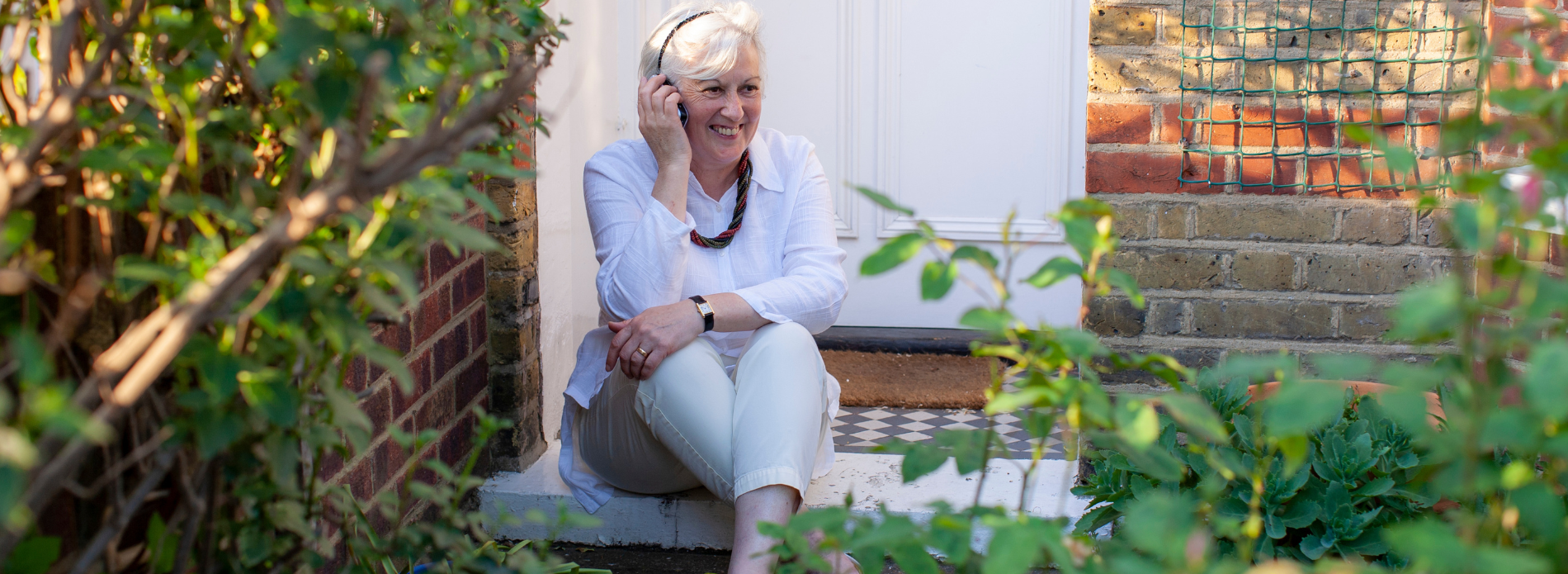There are currently around one million people in the UK with a diagnosis of dementia, with Alzheimer’s disease being the most common type.1 Although you can’t prevent dementia, and there are risk factors outside your control (such as ageing), there are lifestyle choices you can make to help reduce your risk – such as keeping your brain active.
We’re exploring what you can do, whatever your age, to help keep your brain alert for good brain health.
How is the brain and dementia linked?
There is a wealth of research into the link between brain health as we age and dementia. It’s worth remembering that dementia is not a natural part of ageing2, so learning what you can do to lead a brain-healthy lifestyle is important in helping preserve cognitive function.
Alzheimer's Research UK previously called for further brain health awareness and integration into healthcare and stated that: “Good brain health must be promoted throughout life for people of all ages. It is a more holistic and engaging prevention strategy to reduce the decline and disability associated with the onset of long-term conditions like dementia.”3
It is never too early and never too late for preventive action on dementia, including in earlier stages of cognitive decline.3 So, how do you go about ensuring you have a healthy brain?
Getting active
Exercise has been recognised as playing an important part in brain health, with some studies suggesting that the parts of the brain that control thinking and memory are larger in volume in people who exercise than in people who don't.4
As we age, it’s common for the hippocampus to shrink (the part of our brain responsible for learning and memory) but conditions such as Alzheimer’s disease make this shrinkage more rapid.5 However, physical activity, such as aerobic exercise, has emerged as a promising low-cost treatment to improve neurocognitive function.6
Increasing blood flow to the brain
Exercise causes an increase in blood flow, particularly to areas such as the brain. This is important as a lack of blood flow to the brain has been linked to dementia.
Alzheimer’s Society are funding research into this link and explain that “interruptions in the brain’s blood flow can cause our brain cells to die and brain tissue to be damaged. It’s this damage which causes symptoms of vascular dementia, such as problems with thinking, reasoning, or memory.”7
Exercising can therefore enhance blood flow and expose your brain to oxygen and essential nutrients that will help protect overall brain function.
Improving heart health
High blood pressure, heart disease and high cholesterol levels all increase the risk of dementia, as well as heart attacks and strokes, which themselves can lead to impaired cognitive function.8
Exercising for at least 150 minutes every week is one of the key ways to improve cardiovascular health and protect against all of these conditions and their effect on brain function.
This doesn’t mean only going for a run every week, weight-training or playing a sport, physical exercise refers to daily activities such as brisk walking, cleaning or gardening. One study found that daily physical tasks such as cooking and washing up can also help reduce the risk of Alzheimer's disease.9
Our exercise and fitness hub has lots of tips and guidance on different ways to exercise, whatever your age or ability.
Staying socially connected
Staying socially connected can also help keep your brain healthy. According to the Global Council on Brain Health, having close ties to friends and family, and participating in meaningful social activities, may help people maintain their thinking skills better in later life and slow down cognitive decline.10
Although more evidence is needed in this area, research suggests that those who are socially active have good brain health.
It can be difficult as we get older to maintain social connections and continue to make new friends, especially in retirement years when you don’t have workplace interactions anymore. However, there are plenty of ways to help build up your social circle and help prevent loneliness:
- Join a class or club on an activity you enjoy or try something new.
- Try volunteering – not only does this help with the social aspect it also gives you a boost of positivity and feelgood hormones.
- Arrange regular meetups with family and friends, or try and reconnect with old friends that you have drifted apart from.
- Connect with people online too, online communities and forums for example.
- Consider having a pet – pets can help prevent loneliness, make you more active (think daily dog walks), and make you more sociable.
>Read more on the physical and mental health benefits of having a pet
Research suggests that when we socialise it stimulates our attention and memory, and therefore strengthens neural networks in our brain; as we’re keeping mentally active. One large study of 12,000 participants, suggested that when people are lonely, their risk of dementia rises by as much as 40%.11
>Read more about loneliness and how to help combat it, in our article 7 steps to deal with loneliness
Another way to help keep you mentally stimulated, is by completing puzzles such as crosswords or Sudoku, with many companies branding these as “brain-training”.
Do brain-training exercises work?
You may see online or hear about brain-training exercises or puzzles targeted at those in later life to help keep their brains sharp. But Age UK have highlighted the lack of evidence on whether these actually work:
“It’s clear from a number of studies that mentally stimulating activities are associated with better thinking skills in later life but we are still building the picture as to why and how, and what sort of activities lead to real benefit.”12
They, however, do encourage carrying on with any hobbies or activities you enjoy for good overall wellbeing.
It’s never too late to start looking after your brain health. No matter your age, there are steps you can take to help reduce the risk of both dementia and cognitive decline. Keeping your brain active throughout life may help boost cognitive reserve, a kind of resilience that allows our brains to resist damage for longer as we age.13
For more articles, inspiration and tips for living better for longer, check out our Ageing Well hub.
References
- What is dementia? – Dementia UK
- Symptoms of dementia – NHS
- Beyond dementia risk reduction: a consensus statement on Brain Health – Alzheimer's Research UK
- Exercise can boost your memory and thinking skills – Harvard Health Publishing
- Hippocampus size linked with cognitive decline – UCL
- Exercise training increases size of hippocampus and improves memory – National Library of Medicine
- Researching links between dementia and blood vessels – Alzheimer's Society
- Causes and risk factors of dementia – Dementia UK
- Types of physical activity – Alzheimer's Society
- Social connections and the brain – Age UK
- 3 ways to build brain-boosting social connections – Havard Health Publishing
- Exercise for the brain? – Age UK
- Keeping the brain active may help prevent dementia – Alzheimer’s Research UK














